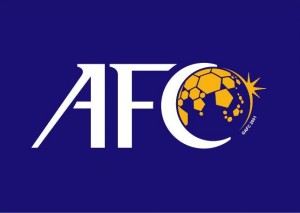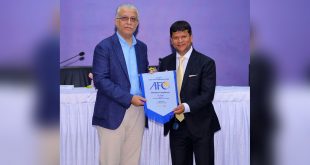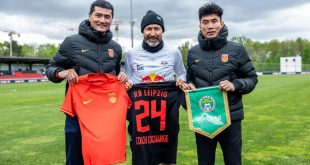 The AFC Football Emergency & Anti-Doping Regional Course came to a close on Friday, October 12 following a highly successful programme at the Bunyodkor Stadium in Tashkent, Uzbekistan.
The AFC Football Emergency & Anti-Doping Regional Course came to a close on Friday, October 12 following a highly successful programme at the Bunyodkor Stadium in Tashkent, Uzbekistan.
A total 28 participants from six countries that make up the Central Region, took part in the four-day programme hosted by the Uzbekistan Football Association (UFA) in co-operation with ZOLL Medical Corp. The participants were exposed to theoretical and practical sessions, on-pitch emergency medicine and anti-doping procedures.
The course, held in Central Asia for the first time and endorsed by FIFA, is tasked with increasing the growing pool of trained medical practitioners specialising in football emergency medicine and anti-doping.
UFA General Secretary Sardor Rakhmatullaev, who graced the opening ceremony said, “The UFA is happy to be chosen as hosts of the regional course and I would like to extend a warm welcome to Member Association participants from the Central Region and this is a great opportunity to learn from FIFA and AFC experts.”
Also in attendance was Uzbekistan Professional Football League General Director Omon Gafurov.
Professor Efraim Kramer, who was the advisor on football emergency medicine in the 2018 FIFA World Cup Russia with the FIFA medical committee, alongside AFC Medical Committee Chairperson Dato’ Dr Gurcharan Singh, were the instructors.
“Among the football bodies in the world, AFC is very active in conducting courses in football medicine and for first time since the course started in 2014, we have seen the largest number of female doctors, nine here in Tashkent,” said Dato’ Dr. Gurcharan Singh.
“This is one of the regional courses which participants were keen on. The turnout is always encouraging and participants always ask a lot of questions. This shows the desire to learn and this is what the course is all about.”
“What I liked about the course was that the content and practical applications that the trainers used were helpful and we were able to practice this instead of just learning the theoretical part,” explained by Professor Kramer.
“Although I wouldn’t like to have cases such as cardiac arrest, now we know what to do when faced with the situation,” said Dr Alimova Nasiba, Uzbekistan’s Women’s national team doctor.
“The last two days of the course were also informative as elaborated by Dr. Singh and he briefed us on new updates. Overall the theoretical and practical implementation of this course is very important to our profession.”
 Arunava about Football A look at football & the world through my eyes!
Arunava about Football A look at football & the world through my eyes!



